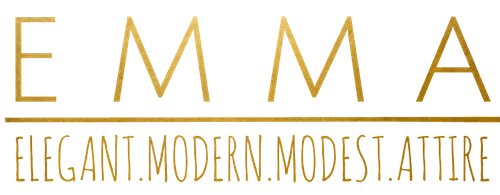Subtotal: $187.70
Hijab Articles
Is Botox Haram in Islam?
The rulings of beautification in Islam are complex and multi-sided, especially when it comes to women.
In most cases, there isn’t one view on the matter, but you’ll rather find different interpretations and practices according to different scholars and cultures.
That applies to using makeup, putting on perfume, using fake nails, and most importantly, cosmetic procedures. One of the complex topics in Islam is using Botox and similar fillers for beautification purposes.
Is Botox haram in Islam? Or is it allowed if its effects aren’t permanent?
What Is Botox Used For?

Botox, short for Botulinum Toxin, is a neurotoxic protein produced by the bacterium Clostridium botulinum.
In the beauty industry, Botox injections are commonly used for cosmetic purposes to reduce the appearance of wrinkles and fine lines on the face.
The way it works, it temporarily paralyzes the muscles, preventing them from contracting and causing wrinkles to appear less prominent.
Women often use Botox to treat wrinkles in areas such as the forehead, between the eyebrows (frown lines), and around the eyes (crow’s feet). However, it’s also used for some lip procedures like lip flips.
Is Botox Haram?

According to many scholars, using botox or similar procedures is considered impermissible in Islam unless the intention behind it is to repair a defect or restore an abnormal condition to a normal state.
That’s because altering the natural creation of Allah Almighty is prohibited unless it is done to correct a defect or abnormality.
Using Botox solely for the purpose of beautification is deemed impermissible in this context. Likewise, using botox to imitate Western women is also considered impermissible, as imitation of non-believers (kafirs) is forbidden in Islam.
Alternative Opinions
Some scholars hold an alternative viewpoint, suggesting that the use of Botox can be permissible if it does not entail any harm since Allah prohibits us from harming ourselves.
This perspective suggests that if botox injections are safe and do not cause harm to the woman using them, they may be considered permissible within the bounds of Islamic ethics.
This interpretation draws attention to the importance of considering potential benefits and risks in determining the permissibility of Botox usage.
While both opinions seem reasonable, you ultimately have to choose one road to walk. We personally believe that it’s better to steer clear of Botox since it’s a matter of controversy in Islam.
If it’s indeed haram, then you’re on the right side, and if it’s halal, then you get the thawab of avoiding matters of suspicion for the sake of Allah
Is Botox Haram Because It Contains Animal-Derived Protein?

A point of contention in the debate over whether Botox is considered haram revolves around the presence of albumin, a protein derived from animals.
Albumin is naturally occurring in the human body, produced in the liver and found in blood plasma. However, medicinal albumin can also be derived from human blood.
In Islamic teachings, some scholars prohibit the consumption or use of animal-derived products.
However, the status of albumin as an animal protein when sourced from humans is subject to interpretation. This ambiguity causes confusion about whether the use of albumin in Botox is a violation of Islamic principles regarding animal-derived substances.
It’s a matter that requires careful consideration and interpretation before arriving at a conclusion.
Are Implants or Fillers Haram?

The question of whether implants or fillers are considered impermissible (haram) in Islam depends on the extent of physical alternations they cause.
Permanent physical alterations are generally discouraged in Islam as they are seen as altering the natural creation of Allah.
However, Islamic teachings differentiate between permanent changes and temporary enhancements.
Temporary modifications like henna tattoos and wearing jewelry are not only permitted but often encouraged for women—as long as it’s in front of other women and Mahram men.
When it comes to lip fillers and Botox, the temporary nature of their effects complicates the matter.
While the results may last for several months or a few years, they are ultimately not permanent. This leads to a controversy among Muslims regarding the permissibility of such treatments, especially considering that they offer only temporary improvements.
Some people argue that these fillers contain naturally occurring components found in the human body, leading to the interpretation that they are not adding anything foreign or tampering with Allah’s creation. So, it’s okay to use them. However, we don’t know that for sure as scholars seem to have different opinions about it.
Some theories suggest that the use of fillers may not necessarily violate Islamic principles if they are deemed safe and do not result in permanent alterations. However, we’re pro-choosing the safe side and steering clear of anything that may be haram.
The Final Verdict
The topic of whether Botox is haram seems to have multiple opinions. On one hand, people believe it’s haram because it’s a form of beautification that’ll be revealed to non-mahrams if the woman doesn’t cover her face.
Others believe it’s haram because it’s an alternation of Allah’s natural creation, which isn’t allowed unless it’s to fix an abnormality.
On the other hand, some people deem it permissible if it doesn’t cause harm to the woman using it.
In the end, Allah knows best. We generally encourage staying away from any procedures that are a matter of suspicion and controversy in Islam.

 Sierra
Sierra  Layal
Layal  Earth Stone
Earth Stone
Read More
A Better Version Of Myself
6th year in my hijab. Hijab builds me, it protects me. Flash back, 6 years ago… I was afraid of [...]
5 Comments
Oct
Nesma Khedr’s Hijab Story
❤ الحمد لله الذى بنعمته تتم الصالحات …. قلعته بعد ١٦ سنه حجاب و لبسته تانى بعد ٨ شهور [...]
35 Comments
Sep
Greater Than All
As these very special 10 days of Dhul Hijja unfold, I’m intrigued to explore more of their hidden gifts sent [...]
11 Comments
Aug